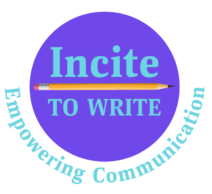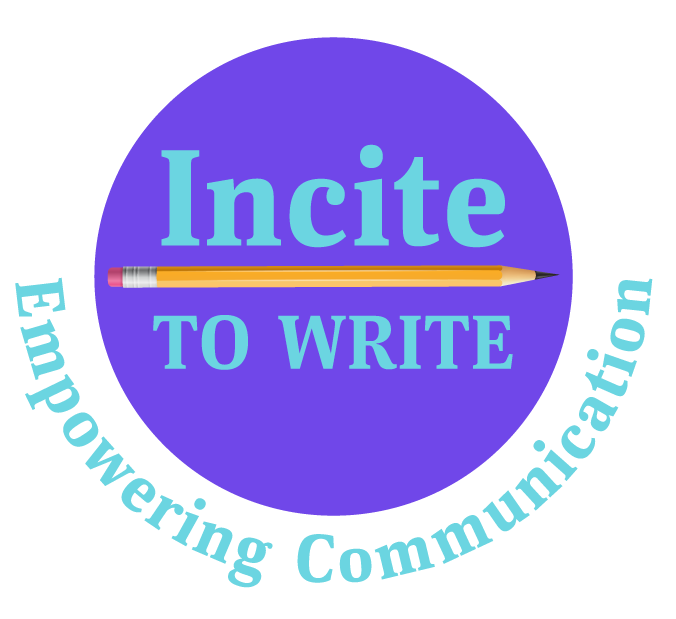About
About Carol Aubrey

Carol Aubrey is the creator and program developer for Incite to Write. She is an author and educator specializing in Writing, Higher Order Thinking Skills, Speaking, Creative Learning and Creativity. A resident of Florida for 15 years, she provided teacher training for the Florida Dept. of Education and the FL Dept. of Cultural Affairs, and worked as a consultant and trainer for the school districts of Broward, Palm Beach, and Miami-Dade Counties. A dynamic and inspiring speaker, Carol’s speaking engagements are diverse, from keynote addresses at arts education conferences to speaking at the International Center for Global Justice in San Miguel de Allende, Mexico. She is also an editor and published author. Her first book, Fearless Thinking, was released in February, 2009.
A Kennedy Center Partners-in-Education educator/artist, Carol is a long-time arts integration advocate and practitioner. She has a B.F.A. Degree in Acting from the Univ. of North Carolina School of the Arts, and a M.F.A. Degree from Brooklyn College. She was a professional actor in New York for over 10 years and has taught in the Theatre Departments at Brooklyn College and Florida Atlantic University. While an Adjunct Professor for Lesley University in Cambridge, MA, she traveled around the country training teachers in their innovative M.Ed Creative Learning Program, a program that specializes in using the arts as a strategy to teach the core curriculum.
About Incite to Write
Incite to Write is a standards-driven curriculum proven to advance the English Language Arts achievement of students who have fallen behind. The strategies that comprise the INCITE TO WRITE program were first developed over 20 years ago in response to the need to actively engage students in the writing process and improve their scores on Florida’s state-wide standardized writing test.
The innovative and motivating strategies and lesson plans were created by Carol over a 5-year period working directly in the classrooms of over 45 schools in Palm Beach and Broward counties as an arts-integration specialist and Language Arts consultant. Carol was tasked with creating solutions to the problems teachers encountered teaching Writing and Language Arts to K-8th graders, including helping students respond successfully to different writing prompts.
Emphasizing critical and creative thinking skills, the fun and engaging strategies were a success from the start. Students gained confidence, and for many, writing became something that was finally doable. Because of its success in raising student scores in summative testing situations, Carol was awarded several educational grants at the local and state level to further develop and expand the curriculum.
Incite to Write consists of over 180 participatory strategies, worksheets, and activities that are designed to accelerate learning in a systematic way and allow for repeated practice opportunities. Instruction is active and interactive, emphasizing a hands-on approach that can be alternately independent and collective. The delivery methods used in the Incite to Write program underscore the empirical rationale that students’ involvement and active participation in their learning is essential and produces a measurable impact on their academic success.
All strategies in the program are explicit and identify the common core standard that the activity addresses. Instruction builds on competencies and allows for remedial instruction that targets learning gaps. CLICK HERE For more information on the evidence based research that supports the Incite to Write program.
Great Words From Carol Aubrey
It’s always good to remember that grounding ourselves in reality is essential for making smart choices. And we can’t be in reality unless we are willing to look at the facts. All academic subjects involve the study of facts.
Facts are not something we need to believe in. They are not beliefs. According to the dictionary, a fact is something that can be proven to be true and is not up for interpretation. There’s an interesting thing about facts. They are neutral. By themselves, they have no emotional charge, no political charge, no personal charge. They simply are a true record of what is.
In school, usually around the 1st and 2nd grades, students are introduced to fact and fiction. They have to determine what is a fact, and what is fiction. As they get older, they need to distinguish between fact, opinions, beliefs, and fiction. And they learn the unanticipated and often destructive consequences that result when we confuse fiction with fact.
In writing, students learn the genres of expository writing (writing that explains something) and persuasive/opinion writing. Expository writing is generally based on facts, and persuasive/opinion writing is an opinion that is partially or wholly backed by facts. Students also learn to write research papers which require they research the facts. These forms of writing are excellent exercises in helping students become discerning, knowledgeable and analytical so they can make smart choices in their own lives that are grounded in reality.
Help your kids recognize how important it is for them to understand our human tendency to ignore or distort the facts we don’t like. Go back and examine an unpleasant experience. What part did facts, or the unwillingness to look at the facts, play in the outcome? What were the consequences?
Enjoy the winter, face the facts so you and your kids can make wise choices, and remember to focus on the essences that we all cherish: joy, creativity, ease, freedom, fun, community, peace, balance, beauty, service, kindness… and the list goes on and on!
– Carol Aubrey
For intentional reading on racial justice for young people, I encourage you to check out the reading suggestions at the Teaching Tolerance website or EmbraceRace.org, which has great resources and book suggestions for both younger and older children. Plus, they have useful discussions every Thursday night on Zoom.

